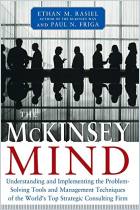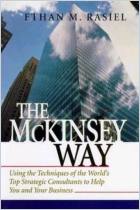You may have difficulty grasping exactly what management consultants do. Professor Marc G. Baaij sets out to close that knowledge gap and make the complex world of management consultancy more comprehensible to those outside the industry. Whether you hope to understand what to expect of a consultant or aspire to be a consultant yourself, Baaij explains the processes consultants apply to tasks, ranging from identifying problems to implementing solutions, while offering insights into the management consultancy ecosystem.
Management consultants independently advise managers on important decisions.
Management consultancy is a project-based enterprise that sells advice to clients relating to untapped opportunities and potential solutions to existing or future problems. Management consultants don’t make decisions; they advise managers in organizations ranging from corporations to hospitals to nonprofits. To give impartial and objective advice, management consultants must operate independently and, thus, cannot be dependent on a single account. People hire consultants for their advice, fresh perspective and experience.
In an official capacity, consultants act like doctors – in that they diagnose problems – and as facilitators, and they provide temporary support.
Management consultancy takes three forms. “Brain consultancy” refers to the accumulation of knowledge to help clients solve problems. “Procedural consultancy” refers to helping clients who face similar challenges, for example, incorporating cryptocurrencies into a business model. “Grey hair consultancy” refers to providing clients with implicit or tacit knowledge derived from...

















Comment on this summary or Comenzar discusión